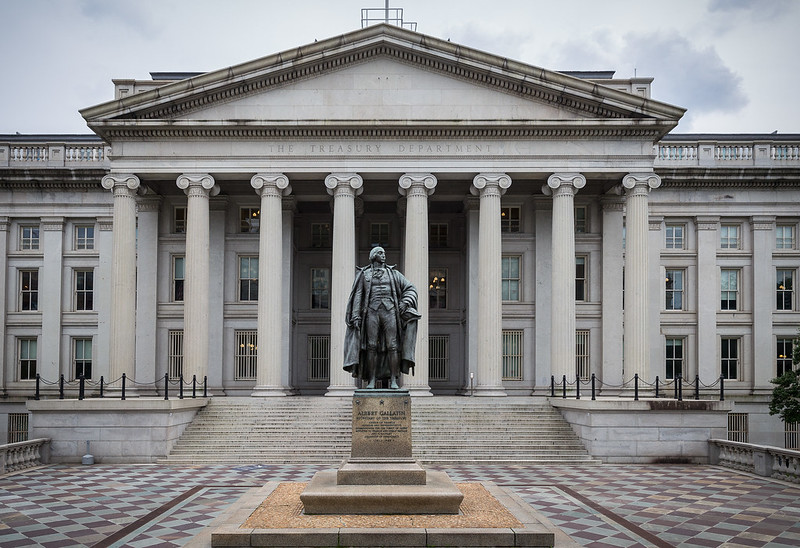In recent years, AI has gained significant traction in the financial sector, with applications ranging from algorithmic trading and risk assessment to fraud detection and customer service. Its ability to process vast amounts of data and identify patterns quickly has provided tremendous benefits to financial institutions, improving efficiency and decision-making.
AI Poses Regulatory Concerns
Regulators are now warning about the potential risks associated with AI in finance. According to a report by CNN Business, regulators have issued their first-ever warning about the dangers AI poses to the financial system. They emphasize the urgent need for regulations and safeguards to mitigate these risks.
One major concern is the potential for AI algorithms to amplify systemic risks and create financial instability. AI-driven trading systems, for example, could exacerbate market volatility and lead to flash crashes.
Additionally, biased algorithms could perpetuate inequalities or discriminate against certain groups, raising ethical and social concerns.
Regulatory Bodies Springs to Action
Financial Times shares that regulatory bodies are grappling with the fast-paced evolution of AI in finance. While AI innovations drive efficiency, the lack of comprehensive regulations poses challenges in managing potential risks.
Experts argue that a delicate balance must be struck to foster innovation while implementing safeguards that ensure the financial system's stability.
The financial industry is no stranger to crises, and the specter of 2008 still looms large. Learning from past mistakes, financial institutions are urged to address potential pitfalls associated with AI integration proactively.
Ethical considerations, bias mitigation, and transparent AI development are paramount to building a resilient financial ecosystem.
As AI cements its role in the financial landscape, stakeholders must proactively address the emerging challenges to mitigate potential risks.



 Elon Musk’s SpaceX Acquires xAI in Historic Deal Uniting Space and Artificial Intelligence
Elon Musk’s SpaceX Acquires xAI in Historic Deal Uniting Space and Artificial Intelligence  Nvidia CEO Jensen Huang Says AI Investment Boom Is Just Beginning as NVDA Shares Surge
Nvidia CEO Jensen Huang Says AI Investment Boom Is Just Beginning as NVDA Shares Surge  Nvidia Nears $20 Billion OpenAI Investment as AI Funding Race Intensifies
Nvidia Nears $20 Billion OpenAI Investment as AI Funding Race Intensifies  Nintendo Shares Slide After Earnings Miss Raises Switch 2 Margin Concerns
Nintendo Shares Slide After Earnings Miss Raises Switch 2 Margin Concerns  Amazon Stock Rebounds After Earnings as $200B Capex Plan Sparks AI Spending Debate
Amazon Stock Rebounds After Earnings as $200B Capex Plan Sparks AI Spending Debate  Google Cloud and Liberty Global Forge Strategic AI Partnership to Transform European Telecom Services
Google Cloud and Liberty Global Forge Strategic AI Partnership to Transform European Telecom Services  TSMC Eyes 3nm Chip Production in Japan with $17 Billion Kumamoto Investment
TSMC Eyes 3nm Chip Production in Japan with $17 Billion Kumamoto Investment  Instagram Outage Disrupts Thousands of U.S. Users
Instagram Outage Disrupts Thousands of U.S. Users  SpaceX Updates Starlink Privacy Policy to Allow AI Training as xAI Merger Talks and IPO Loom
SpaceX Updates Starlink Privacy Policy to Allow AI Training as xAI Merger Talks and IPO Loom  Sony Q3 Profit Jumps on Gaming and Image Sensors, Full-Year Outlook Raised
Sony Q3 Profit Jumps on Gaming and Image Sensors, Full-Year Outlook Raised  SpaceX Prioritizes Moon Mission Before Mars as Starship Development Accelerates
SpaceX Prioritizes Moon Mission Before Mars as Starship Development Accelerates  SpaceX Reports $8 Billion Profit as IPO Plans and Starlink Growth Fuel Valuation Buzz
SpaceX Reports $8 Billion Profit as IPO Plans and Starlink Growth Fuel Valuation Buzz  Sam Altman Reaffirms OpenAI’s Long-Term Commitment to NVIDIA Amid Chip Report
Sam Altman Reaffirms OpenAI’s Long-Term Commitment to NVIDIA Amid Chip Report  Nvidia, ByteDance, and the U.S.-China AI Chip Standoff Over H200 Exports
Nvidia, ByteDance, and the U.S.-China AI Chip Standoff Over H200 Exports  Baidu Approves $5 Billion Share Buyback and Plans First-Ever Dividend in 2026
Baidu Approves $5 Billion Share Buyback and Plans First-Ever Dividend in 2026  Elon Musk’s Empire: SpaceX, Tesla, and xAI Merger Talks Spark Investor Debate
Elon Musk’s Empire: SpaceX, Tesla, and xAI Merger Talks Spark Investor Debate 































